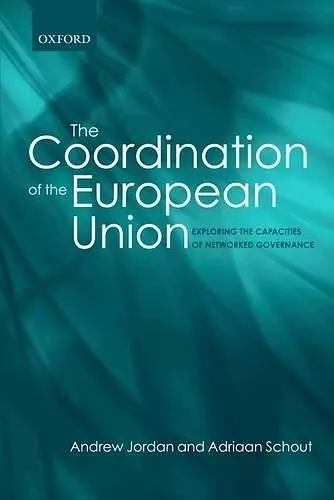The Coordination of the European Union
Exploring the Capacities of Networked Governance
Andrew Jordan author Adriaan Schout author
Format:Paperback
Publisher:Oxford University Press
Published:2nd Oct '08
Currently unavailable, and unfortunately no date known when it will be back

Having realised that its traditional mode of coordinating--essentially issuing regulation--no longer commands sufficient political support, the European Union (EU) has turned to what are increasingly referred to as 'new' modes of governance, which rely upon different actors working together in relatively non-hierarchical networks. This book provides the first extended account of how effective they are at addressing 'wicked' policy problems which simultaneously demand greater levels of horizontal and vertical coordination. Taking, as an example, the thirty year struggle to integrate environmental thinking into all areas and levels of EU policy making, it offers a stark reminder that networked governance is not and is unlikely ever to be a panacea. In doing so, it strips away some of the rhetorical claims made about the novelty and appeal of 'new' modes, to reveal a much more sober and realistic appraisal of their coordinating potential.
Review from previous edition Reformers in pursuit of the holy grail of coordination would do well to heed Andrew Jordan and Adriaan Schout's careful analysis. They document not only the pros and cons of centralised solutions but also the limits to the present-day fashion for networked solutions. Governments are told to 'keep it simple', to mix coordinating strategies and to understand what they cannot do; otherwise we are doomed to recurrent policy messes. For all our sakes, I hope someone will listen this time. * Professor Rod Rhodes, Professor of Political Science and Head of Program, Research School of Social Sciences, Australian National University, Canberra, Australia *
The authors have written a thought-provoking and stimulating book. By taking a hard-headed look at the issue of policy coordination as it relates to governance, they have illuminated key dilemmas in how ambitious initiatives such as environmental policy integration can be put into practice. Their discussion of networked forms of governance makes a real contribution to the literature. Theory is integrated with practical questions of administration in such a clear fashion that both practitioners and academics will find this volume both relevant and engaging. * Professor Desmond Dinan, School of Public Policy, George Mason University, USA *
an extremely valuable [and]... a path-breaking book that highlights the coordination problems raised by networked governance [with] a valuable analytical framework for exploring coordination under such conditions * American EU Studies Review *
[a] seminal study on the coordination of networked governance... [which] contributes greatly to the burgeoning literature on... governance in the EU * Political Studies Review *
[provides] a detailed and innovative tool that can be used to analyse...'wicked' problems... a nice example of assembling a plethora of qualitative data into a well-structured and therefore comprehensible account * Journal of Commom Market Studies *
Among the deluge of books that appear each year on the study of European integration, Andrew Jordan and Adriaan Schout have managed to produce that rare book which is both intellectually challenging and accessible to read... [A] clearly written and authoritative study that will appeal to a wide audience * Environment and Planning *
ISBN: 9780199548484
Dimensions: 233mm x 155mm x 20mm
Weight: 518g
336 pages